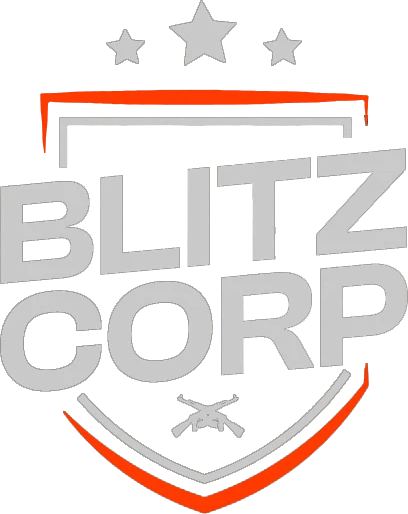Struggling with dyslexia might have you wondering about your chances in military service. Interestingly, the U.S. Armed Forces don't automatically disqualify candidates with this learning disorder.
This article breaks down the barriers and outlines the support systems aiding your potential enlistment journey. Read on to uncover pathways to a rewarding military career despite dyslexia.
Key Takeaways
- Dyslexia does not automatically disqualify you from the military; you can request accommodations like extra time on the ASVAB.
- Before taking tests, get documentation of dyslexia and discuss support such as text-to-speech tools or oral exams with your recruiter.
- To join, prove you can meet standards without help by showing strong reading, writing, and quick decision-making skills.
- If needed, a waiver for dyslexia might be possible with evidence of successful academic or job performance without special assistance.
- The military offers various supports including tutoring services, specialized training materials, and counseling to help those with dyslexia succeed.
Can You Join the Military with Dyslexia?
If you have dyslexia and are considering a military career, you might wonder about the possibility of service despite your condition. The good news is, having dyslexia doesn't automatically disqualify you from joining the armed forces; let's delve into how the guidelines work and what accommodations might be available to support your ambition.

Educational and testing requirements
You need a high school diploma or equivalent to join the military. This shows you can stick with a task and finish it. Your reading, writing, and math skills matter too. They help you score well on the Armed Services Vocational Aptitude Battery (ASVAB).
The ASVAB tests your knowledge and skills in different areas.
Having dyslexia means taking the ASVAB might be tough for you. Don't worry! You can ask for extra time or other help during this test. Talk to your recruiter about getting these accommodations.
They know what support is available and will guide you through the process. Remember, your abilities are essential, not just your test scores. Show them what you can do!
ASVAB testing accommodations
The ASVAB, or Armed Services Vocational Aptitude Battery, is a key test for military applicants. If you have dyslexia, the military may offer accommodations to help you take this exam.
These could include extra time or being able to take tests in a separate room. They might also let you hear questions read aloud or give you permission to mark answers in the test booklet instead of on an answer sheet.
Before taking the ASVAB, talk with your recruiter about what help you can get. Ask early so there's plenty of time to plan for any aids that suit your needs. Every branch views accommodations differently and it’s important to find out how yours handles this process.
Remember that getting accommodations does not affect your chances of joining the military; it levels the playing field so you can show your true abilities.
Did You Know: The military's approach to dyslexia has evolved over time. Historically, dyslexia could be a disqualifying condition for military service. However, modern policies often consider the individual capabilities of applicants with dyslexia, focusing on their ability to perform specific duties and potentially offering waivers or accommodations based on the severity of their condition and their overall qualifications.
Domicile requirements
After discussing ASVAB accommodations, let's look at where you call home. You must meet certain domicile requirements to join the military. For instance, if you want to serve in the Air Force or Coast Guard as an officer or enlisted personnel, you need a legal residence in the United States.
This rule makes sure that all service members have a stable home base and are fully eligible to serve their country.
You may also need proof of your residency status if you're not a U.S. citizen. Each branch has specific rules about who can apply and from where. Always check these details before you start your application process to avoid any surprises later on.
Exclusion from the military
While meeting domicile requirements is one step in joining the military, some rules may stop dyslexic people from serving. The military needs members who can react quickly in combat or other quick-response situations.
Just like if other physical conditions like severe scoliosis, if your dyslexia severely limits your ability to process information fast, this could be an obstacle. For safety and effectiveness, all service members must meet certain standards without special accommodations.
The military often decides on a case-by-case basis if a person's dyslexia is too limiting for service. Remember, demonstrating passing academic and employment performance without needing extra help plays a big role here.
If you've shown solid abilities over time – especially within the previous 12 months – you might still have a strong case for enlistment despite having dyslexia.
How the Military Accommodates Dyslexia
The military actively works to provide reasonable accommodations for recruits with dyslexia, ensuring that their unique learning requirements are met and they can serve effectively; continue reading to uncover the specific support systems in place.

Guidelines specific to dyslexia
If you have dyslexia and want to join the military, there are specific guidelines you need to know. First, understand that having dyslexia does not mean automatic disqualification.
You'll be expected to meet the same educational and testing standards as other recruits. However, it's important for you to obtain proper documentation of your condition from a qualified professional.
During tests like the ASVAB, which measures your abilities in various areas, you may request accommodations because of your dyslexia. This could involve more time or a quieter room.
Keep in mind; these requests should be made before testing day. Proof of past academic performance without utilization or recommendation of special support can show you're capable of meeting military demands despite any learning difficulties.
Proving qualification without accommodations
You can show you're ready for the military even if you have dyslexia. The key is to meet the required standards without extra help. Make sure your reading, writing, and language skills are sharp.
| Military Branch | Policy on Dyslexia | Assessment Process | Accommodations | Additional Notes |
|---|---|---|---|---|
| U.S. Army | May grant waivers for candidates with dyslexia depending on the severity and their ability to meet other criteria | Candidates must undergo a medical examination and may need to provide additional documentation on their condition. | Accommodations during training or testing are considered on a case-by-case basis. | Candidates with dyslexia have successfully joined, but individual cases vary. |
| U.S. Navy | Similar to the Army, waivers may be possible; the focus is on current impact and functional abilities. | A medical examination is required, along with potentially a specialized assessment of the candidate's dyslexia. | Specific accommodations are evaluated individually, with some roles being more accessible than others. | Naval careers can be accessible, depending on the role and level of dyslexia. |
| U.S. Air Force | Policies emphasize the ability to perform required tasks; waivers are considered based on this criterion. | Comprehensive medical and psychological evaluations are performed. | Testing and training accommodations are possible, dependent on individual assessments. | The Air Force may have stricter criteria for certain positions due to technical and safety requirements. |
| U.S. Marine Corps | Dyslexia is assessed in the context of overall medical fitness for duty and the ability to meet Marine Corps standards. | Medical and educational history is reviewed, along with a physical examination. | Case-by-case accommodations for training may be available. | The Marine Corps emphasizes physical and mental readiness, with accommodations being less common. |
| U.S. Coast Guard | Waiver possibilities exist, focusing on the individual's ability to perform essential duties. | Requires a detailed medical examination and may request a learning disability assessment. | Accommodations are provided on an individual basis, with some limitations depending on the role. | The Coast Guard considers each case individually, with a focus on operational capacity. |
Practice often and challenge yourself with tests that mirror what the military uses.
Focus on your ability to work well under stress. Military life is about handling tough situations without a lot of support. Train your brain to process information quickly and clearly.
This shows you can do the job just like anyone else, regardless of dyslexia.
Dyslexia Waiver
Discovering how to secure a dyslexia waiver is crucial, as it could pave the way for your service in the military; keep reading to uncover the steps and strategies that might make this possible for you.
Difficulty in obtaining a waiver
Getting a waiver for dyslexia in the military is tough. Many branches see it as a risk during high-stress jobs or in combat situations. They think dyslexia might affect your ability to learn quickly and respond under pressure.
You'll need strong proof that your dyslexia won't get in the way of your duties. This means showing you've succeeded at school or work without special help.
If you've needed extra time or tools for learning in the past 12 months, getting a waiver becomes harder. The military wants to know you can handle tasks on time, just like everyone else.
But don't lose hope - if you've managed well without help recently, they may consider your application more favorably.
Strategies for Success in the Military with Dyslexia
Knowing the right strategies to thrive with dyslexia in the military can be a game-changer. You'll find support and methods to harness your unique abilities, paving the way for a rewarding service career despite learning difficulties.

Accommodations and support available
If you have dyslexia and dream of joining the military, you may wonder about the support and accommodations available. The military aims to provide help so that your learning disability doesn't stand in the way of your career.
- Extra time during tests: You can get more time to complete exams, helping reduce stress and improve performance.
- Reading assistance tools: Tools like text-to-speech software are available to help with reading difficulties.
- Oral tests: Sometimes, you can take oral exams instead of written ones if that suits your learning style better.
- Note-taking helpers: You might have access to devices or people who can assist with taking notes during training.
- Specialized training materials: The military can provide resources tailored to different learning styles, including dyslexia-friendly formats.
- Tutoring services: Get extra help if you need it. Personal tutors can work with you on challenging subjects.
- Alternate test formats: Tests may come in different forms, like multiple-choice or true/false questions, which might be easier for some people with dyslexia.
- Study guides: You'll find study aids designed to make learning easier for those with dyslexic traits.
- Dyslexia specialists: Specialists understand how dyslexia affects learning and offer strategies for success.
- Counseling services: Talk to someone about any challenges or stress. Counselors are there to support you through your training.
- Support groups: Meet other military members with similar experiences. Share tips and encouragement.
Personal coping strategies
You can succeed in the military even with dyslexia. Use these strategies to help you manage your tasks and stay on top of your game.
- Break down big tasks into smaller, more manageable steps.
- Use technology like audio books and speech-to-text software to help with reading and writing.
- Create daily to - do lists to organize your work and track progress.
- Practice time management skills to make sure you complete tasks on time.
- Ask for verbal instructions or have them written down clearly if that helps you understand better.
- Develop memory aids, such as acronyms or visual imagery, to remember important information.
- Find a buddy who understands your challenges and can offer support when needed.
- Set up a quiet space where you can focus without distractions interrupting you.
- Work closely with superiors to create a plan that plays to your strengths.
- Keep practicing your reading and writing skills regularly to improve them over time.
Did You Know... that individuals with dyslexia often possess unique skills that are highly valued by the military. Research suggests that people with dyslexia may excel in areas such as spatial awareness, problem-solving, and intuitive thinking traits that can be advantageous in various military roles, from tactical operations to strategic planning.
Examples of successful dyslexic military members
People with dyslexia have achieved success in the military. These are just a few examples to show that a learning difficulty doesn't stop someone from serving their country.
- A Navy SEAL overcame his dyslexia to master navigation and strategy. He trained his brain to work differently, allowing him to excel in complex missions.
- An Army officer didn't let dyslexia slow her down. She used technology, like Learning Ally, to help with reading and planning.
- One Air Force pilot used coping strategies to handle fast - paced information. He succeeded in flight school by using more visual learning techniques.
- A Marine with dyslexia developed strong problem - solving skills. This helped him understand maps and communicate clearly during stressful situations.
- Special Forces member found strength in dyslexia's ability to think outside the box. His unique perspective was invaluable in unpredictable scenarios.
Conclusion
You've learned that dyslexia isn't a roadblock to joining the military. Remember, tests like the ASVAB may have accommodations for you. Aim high and consider successful people with dyslexia as your inspiration.
If faced with challenges, know where to find help and support. Believe in yourself and take your next step towards a military career confidently!
Frequently Asked Questions
Can someone with dyslexia join the military?
Yes, a person with dyslexia can join the military. If they haven't needed any special school help or work accommodations because of their dyslexia in the last 12 months, they may qualify.
What are specific learning disabilities and can they affect joining the military?
Specific learning disabilities like dyslexia or auditory processing disorder can affect how a person learns. These don't always stop someone from joining the military as long as their performance meets standards.
Does having attention deficit or behavioral disorders impact military recruitment?
Attention deficit disorder and certain behavioral disorders might affect joining the military. The guidelines say that your ability to perform mustn’t have depended on medication or special accommodations recently.
Are there supports for people with perceptual disabilities in boot camp?
The Americans with Disabilities Act doesn't cover boot camp training, so you won't get extra help there if you have a perceptual disability like dyslexia.
How does data privacy like GDPR play a role during military application due to my condition of limited to Dyslexia?
Your private information about conditions like dyslexia is protected by data privacy laws such as GDPR during your application process which ensures sensitive details remain confidential.
Will I need to disclose my learning disability when applying for commission in any branch of the military?
Yes, being open about learning disabilities is crucial when applying for commission in the military; it helps determine if you're fit for service and what tasks suit you best.
What accommodations can I request for dyslexia?
You can request work accommodations that aid your job performance at any time under ADA guideline 315.
What if I only have a GED due to undiagnosed dyslexia?
A recent GED could qualify you based on the previous 12 months.
Can I join the US Air Force if I have severe dyslexia?
No, the rationale for excluding individuals with severe dyslexia is quick response times needed in combat.
What if a retired US Army Special Forces Green Beret officer was diagnosed with dyslexia after service?
Members of the armed forces are exempt from the ADA per Taylor v. Beattie, so it would not disable his prior service.
Do I have to prove I can meet standards without dyslexia accommodations to join?
Yes, successful candidates must prove they can qualify without accommodations per the federal code.
Can General George Patton's success inspire me to enter the military with dyslexia?
Yes, please let his achievements and others aspire you to talk to a recruiter about eligibility.
If I struggled in high school due to undiagnosed dyslexia, can I still join?
Yes, you can use college credits or ROTC to meet the standard. Talk to your recruiter for details.











